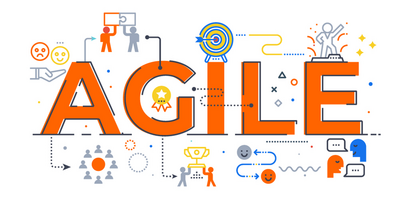Single View

Agile Project Management
- Lecturer:
- Prof. Dr. Ralf Plattfaut
- Term:
- Winter Semester 2023/2024
- Time:
- Thursday, 4pm - 7pm
- Room:
- R09 S02 B10
- Start:
- 12.10.2023
- End:
- 01.02.2024
- Language:
- English
- Moodle:
- Lecture in Moodle
- LSF:
- Lecture in LSF
Important Notes:
In this module, students will need to write a seminar paper and give a short presentation during the semester. As such, registration to one seminar topic is needed before 20th of October. More details will be announced in the first class.
Description:
Discover the principles and practices of Agile Project Management in this dynamic and practical course. Learn how to lead and execute projects with flexibility, adaptability, and customer-centricity at the core. Gain insights into Agile methodologies, including Scrum and Kanban. Discuss advantages and disadvantages of Agile methodologies. Understand the underlying theories and develop methods to scale Agile to organizations.
In this highly interactive course, students are required to give short presentations (lightning talks) on a given topic to advance the discussion further.
Learning Targets:
Students should be able to
- Define agility in the context of project management
- Compare foundations of agile and traditional project management
- Decide whether agile or traditional methods would be best suited for a specific project
- Apply methods of agile project management (e.g., user stories, planning poker)
- Manage projects using agile methods (e.g., Scrum, Kanban)
- Evaluate the suitability of different scaled agile methods for specific organizations
Outline:
- Introduction to Agile Project Management
- Lean as a basis for Agile
- Project Lifecycles, Agility, and the Agile Mindset
- Scrum
- Backlogs, Epics, and Stories
- Scrum Meetings
- Performance and Velocity
- Kanban
- Scaling Agile
- SAFe
- LeSS
- Objectives and Key Results (OKR)
- Scaled Agile in Companies
- Test-Driven Development and DevOps
- Design Thinking
- Evaluation of Agile Practices / Agile transformation of organizations
- Agile Work Environment and the “Agile PMO”
Methods of Assessment:
Final course grade will be determined through final exam (50%), seminar paper (30%) and lightning talk (20%)
